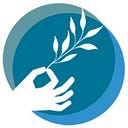Member-only story
PERMA (Promoting Economic Revival of Micro-businesses and Agriculture) in Al Hamdaniya, Iraq
By ALex Angulo
The urgent public health needs brought on by the COVID-19 pandemic have understandably drawn donors’ attention towards supporting emergency interventions to mitigate the spread and immediate impact of the virus. However, it is also critical that we do not lose focus on the multi-sector interventions that address the systemic challenges that already existed, and have been exacerbated by the virus.
For many communities around the world, COVID-19 is just one crisis on top of many others, such as armed conflict, food insecurity, lack of livelihoods, gender inequality, and climate change. Indeed, research from past pandemics show how infectious diseases have a multiplier effect by increasing the risk of armed conflict, exacerbating disease transmission and stifling public health response; as an example, Mercy Corps’ experience in West Africa with the Ebola crisis showed areas that suffered the most from the virus also observed increased civil unrest between six and nine months after the outbreak. The COVID-19 pandemic has also devastated the global economy, with an estimated 14.3 million people expected to fall below the poverty line in Arab Middle Income and Least Developed countries. In Iraq, the pandemic has dramatically increased the number of Iraqis considered economically vulnerable — now as much as half the population, as estimated by the World Bank.
